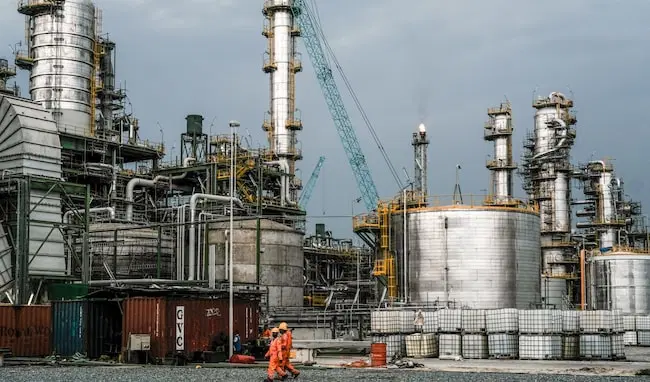Dangote Petroleum Refinery has stood its ground in its ongoing dispute with the Depot and Petroleum Products Marketers Association of Nigeria (DAPPMAN).
The refinery insisted it would not absorb logistics costs, describing marketers’ demand for a ₦1.505 trillion “subsidy” as false and misleading.
DAPPMAN members, who own most private depots in Nigeria, argue that moving fuel from Lagos to other regions requires heavy logistics and coastal shipping expenses.
But Dangote Group, in a statement posted on its official X handle, stressed: “Dangote Petroleum Refinery stands by its statement on DAPPMAN … Marketers’ ₦1.505trn Subsidy Demand.”
The company said sales are made at its gantry based on production costs and regulated margins. “DAPPMAN’s claim of subsidy is false and unfounded,” it added.
Refinery Defends Its Position
Dangote explained that marketers want it to bear coastal shipping charges for fuel delivery to depots nationwide. The refinery dismissed this as an unfair demand.
“Marketers are demanding that Dangote Petroleum Refinery take on the cost of moving products to their coastal depots nationwide. We reiterate that subsidy was removed by the Federal Government in May 2023, and we cannot be coerced into absorbing distribution costs,” the management said.
The company also revealed that it had handled massive nationwide distribution since June through road and rail. Between June and September, it recorded “a combined 3,478,228 tanker movements, ensuring sustained supply of petroleum products nationwide.”
Strike, Scarcity Fears, and Industry Tensions
This dispute comes amid a strike recently declared by the Nigeria Union of Petroleum and Natural Gas Workers (NUPENG). The industrial action, linked to workers’ welfare and alleged high-handed practices, temporarily disrupted supply and raised fears of scarcity.
With deregulation still contested, the refinery insisted: “We remain committed to ensuring energy security in Nigeria, delivering products at affordable prices, and working with all stakeholders for stability.”
But without clear agreements, the burden of deregulation could keep being borne by consumers.
Rate, Like 👍, Comment💬, share this article and Follow us on our social media handles. You can also Submit your own story to get featured and earn rewards!







